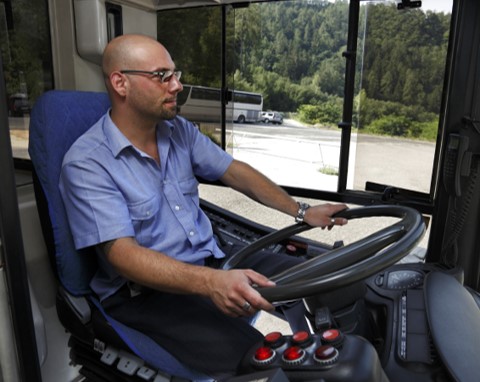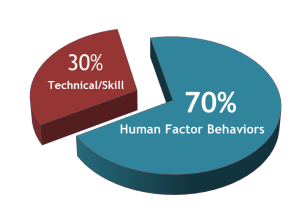
Understanding the Impact of Employee Performance
Differences in employee performance can be much more significant than many Motorcoach operators may realize. The differences are not the typically described 10 percent to 20 percent to 30 percent that most managers or executives estimate.
Controlled experimentation and careful observation reveal that top performers are two and three times (yes, that is 200 percent to 300 percent) more productive than their barely acceptable counterparts.
The Big Difference in Top Performers
You may have experienced this contrast in your career. You may have had a top-notch administrative assistant. For some reason, they left, and you found that it took two people to do what they were doing. That’s the kind of difference I’m talking about, and it’s big.
Skills vs. Behaviors: Impact on Performance
Increases in performance among your existing employees are possible if, and mostly when, the performance indicator is skill-related. It is possible to increase typing speed from 40 words per minute to 60 with training and practice. Increasing the speed (and hence performance) at which a diesel tech can break down an engine with additional training is possible.
These increases in skill performance most certainly impact productivity. But I guarantee you that you need two people to do what one used to do not because of increased typing speed. That’s because of all the behaviors that comprise a given job—only about 30 percent are technical or ‘hard’ skills. That is not to say that they are not necessary. They are.
The Critical Role of Human Factor Behaviors
Someone who presents himself as a journey-level diesel technician must have specific skill sets. A motorcoach driver must have a CDL, which implies a certain amount of technical and driving skills. You can address deficiencies in skill areas with additional specific training.
I want to stress that, for the present purpose, 70 percent (or more) of the behaviors that make up a given job don’t have anything to do with hard skills. They are the human factor job behaviors that comprise the job, and they significantly impact overall job performance, including the skills or technical part of the position.
The Challenge of Training Human Factor Behaviors
The problem is that these behaviors are challenging to train for and are almost impossible to change (short, heavy-duty behavioral modification programs, which most companies will not get involved in). Remember the old joke—how many psychiatrists does it take to change a light bulb? Just one, but the light bulb has to want to change. The same is true of your employees.)
The Role of Human Factor Skills in High Performance
High performance means a person’s technical and human factor skills are at top levels. Motorcoach drivers are supposed to have the technical driving skills to do x, y, and z things in poor driving conditions, but the question is—will he? Does the driver possess the necessary human factor, say, alertness or intelligence? A reasonably skilled diesel technician will negatively impact the productivity of the whole shop if he lacks the empathy or patience to help a fellow tech when he needs help. A driver with excellent skills won’t be productive if he can’t work promptly, politely, and effectively with the dispatcher. It’s the human factor that, more often than not, makes all the difference in the world. You get the point.
Hiring for Behaviors, Training for Skills
The solution? Hire for behaviors; train for the skills. Hiring is the key to increasing workplace performance. It’s better to start with the right people with the human factor job behaviors that the job requires. Hiring the right people is easy if you know what you’re looking for. It’s worth repeating—Hire for the behaviors; train for the skills.
Conclusion: Unlocking Employee Potential through Behavioral Hiring
In conclusion, understanding the profound impact of human factor job behaviors on employee performance is crucial for Motorcoach operators. While technical skills are essential, the human factor often makes the difference between top performers and average employees. Hiring individuals with the right behaviors and then providing skill-based training can unlock your employees’ full potential and elevate your operation’s overall performance. Consider the expertise of Scheig Associates in this endeavor, as their tools are designed to help you identify the ideal candidates for your specific roles.
Improving Employee Performance with Scheig Associates
Scheig Solutions develops job-specific pre-employment assessments, interview questions, and performance evaluations designed to identify applicants who are a good match for the job. They have programs designed explicitly for motorcoach drivers, school bus drivers, and diesel technicians. They have been in business for over 30 years as recognized leading providers of behaviorally based hiring tools. For more information, contact Chris Fisher at (800) 999-8582 or visit www.scheig.com.



